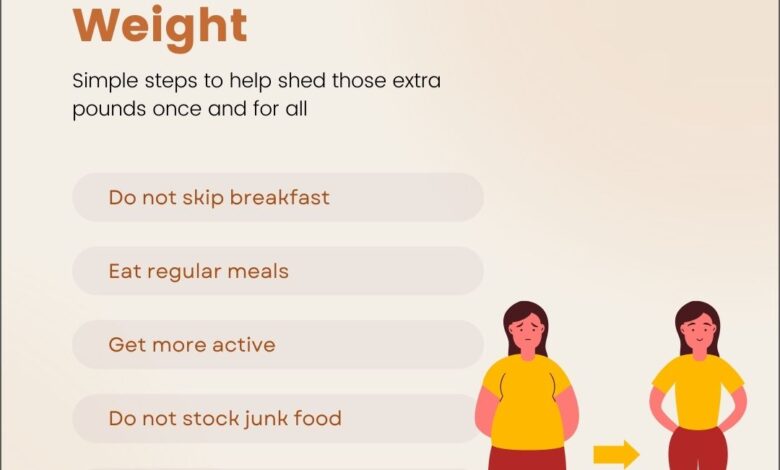
Achieving and maintaining a healthy weight is a common goal for many individuals. Weight loss is not just about appearance; it’s also crucial for overall well-being and reducing the risk of various health issues. However, with the abundance of information available, it can be challenging to navigate through the myriad of advice. In this comprehensive guide, we will explore the key principles and practical tips for effective and sustainable weight loss.
1. Understanding the Basics:
Before embarking on any weight loss journey, it’s essential to understand the basic principles. Weight loss occurs when the calories expended through physical activity and metabolic processes exceed the calories consumed through food and beverages. Creating a calorie deficit is the foundation of weight loss.
2. Set Realistic Goals:
Setting realistic and achievable goals is crucial for long-term success. Rapid weight loss may seem appealing, but it often leads to unsustainable practices and can be detrimental to your health. Aim for a gradual weight loss of 1-2 pounds per week, which is considered safe and manageable.
3. Balanced Nutrition:
A balanced diet is at the core of any successful weight loss plan. Focus on whole, nutrient-dense foods such as fruits, vegetables, lean proteins, whole grains, and healthy fats. Incorporate a variety of foods to ensure you receive a broad spectrum of essential nutrients.
4. Portion Control:
Even healthy foods can contribute to weight gain if consumed in excessive amounts. Be mindful of portion sizes to avoid overeating. Using smaller plates, measuring portions, and paying attention to hunger and fullness cues can help control portions effectively.
5. Stay Hydrated:
Drinking an adequate amount of water is essential for overall health and can also aid in weight loss. Water helps boost metabolism, reduces calorie intake if consumed before meals, and assists the body in flushing out toxins. Aim for at least eight glasses (64 ounces) of water per day.
6. Regular Physical Activity:
Incorporating regular physical activity into your routine is vital for weight loss and overall health. Aim for at least 150 minutes of moderate-intensity exercise per week, such as brisk walking, cycling, or swimming. Additionally, include strength training exercises to build muscle, which can boost metabolism.
7. Be Mindful of Eating Habits:
Mindful eating involves paying attention to the sensations of eating, such as taste and texture, and being aware of hunger and fullness cues. Avoid distractions like television or smartphones while eating, as they can lead to mindless overeating. Chew food slowly and savor each bite.
For More: https://aroundusinfo.com/10-healthy-drinks-that-wake-you-up-better-than-coffee/
8. Get Adequate Sleep:
Quality sleep is often overlooked in weight loss discussions, but it plays a crucial role in regulating hormones that control appetite and metabolism. Aim for 7-9 hours of uninterrupted sleep per night to support your weight loss efforts.
9. Manage Stress:
Chronic stress can contribute to weight gain by triggering emotional eating and promoting the storage of fat in the abdominal area. Incorporate stress-reducing activities such as meditation, yoga, or deep breathing exercises into your routine.
10. Keep a Food Journal:
Keeping a food journal can increase awareness of eating habits and help identify areas for improvement. Record everything you eat and drink, including portion sizes, to gain insights into your dietary patterns and make necessary adjustments.
11. Seek Professional Guidance:
If you find it challenging to navigate the complexities of weight loss on your own, consider seeking guidance from a registered dietitian, nutritionist, or healthcare professional. They can provide personalized advice based on your unique needs and circumstances.
12. Stay Consistent and Patient:
Weight loss is a gradual process that requires consistency and patience. Celebrate small victories along the way, and understand that setbacks are a natural part of the journey. Focus on making sustainable lifestyle changes rather than relying on quick fixes.
Effective weight loss is not about following restrictive diets or engaging in extreme workouts but rather adopting a balanced and sustainable approach. By understanding the fundamental principles, setting realistic goals, and making gradual lifestyle changes, you can achieve and maintain a healthy weight. Remember that every individual is unique, and what works for one person may not work for another. Listen to your body, be patient, and embrace the journey towards a healthier and happier you.



